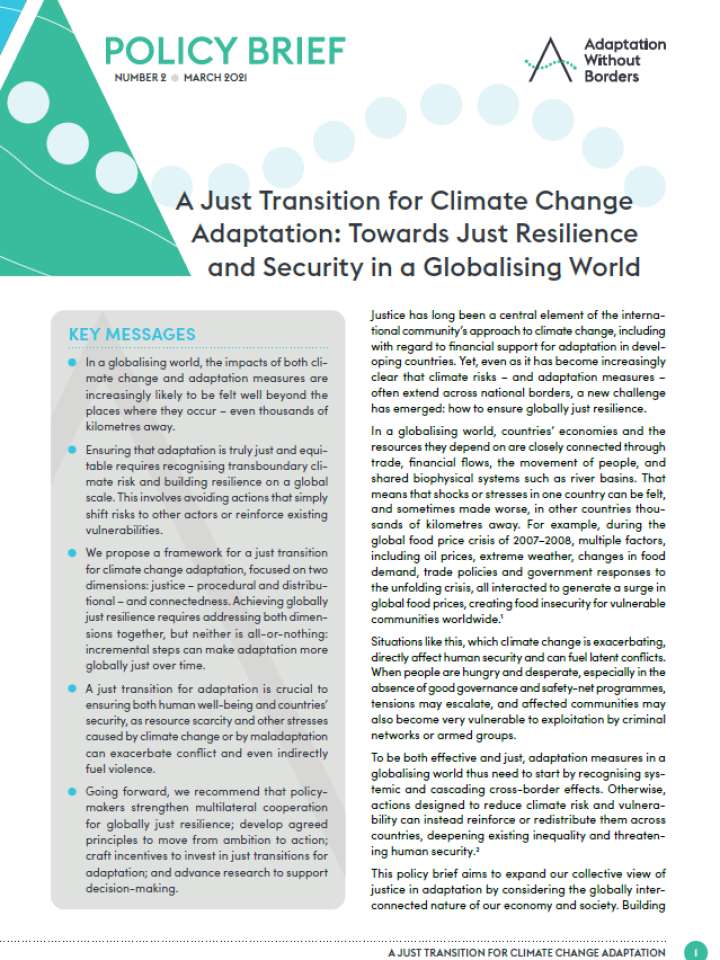A just transition for climate change adaptation: Towards just resilience and security in a globalising world
This policy brief aims to expand the collective view of justice in adaptation by considering the globally interconnected nature of economies and societies. Building on the literature on just transitions for climate change mitigation, it presents a novel framework for a just transition for adaptation, with the objective of achieving globally just resilience. The full brief provides two case studies demonstrating the utility of the framework for analysing and advancing globally just resilience: (i) Agricultural trade and just transitions in the Brazilian coffee supply chain and (ii) Just transition for adaptation in the Blue Nile Basin.
Its key messages are:
- In a globalising world, the impacts of both climate change and adaptation measures are increasingly likely to be felt well beyond the places where they occur.
- Ensuring that adaptation is truly just and equitable requires recognising transboundary climate risk and building resilience on a global scale.
- It proposes a framework for a just transition for climate change adaptation, focused on two dimensions: justice – procedural and distributional – and connectedness.
- A just transition for adaptation is crucial to ensuring both human well-being and countries’ security, as resource scarcity and other stresses caused by climate change or by maladaptation can exacerbate conflict and even indirectly fuel violence.
- It recommends that policymakers strengthen multilateral cooperation for globally just resilience; develop agreed principles to move from ambition to action; craft incentives to invest in just transitions for adaptation; and advance research to support decision-making.
Explore further
